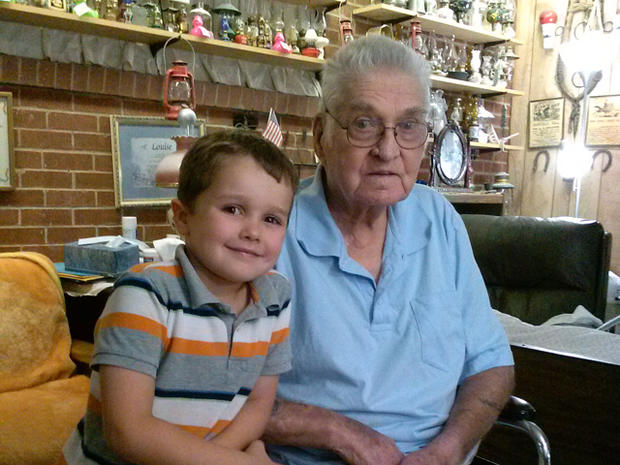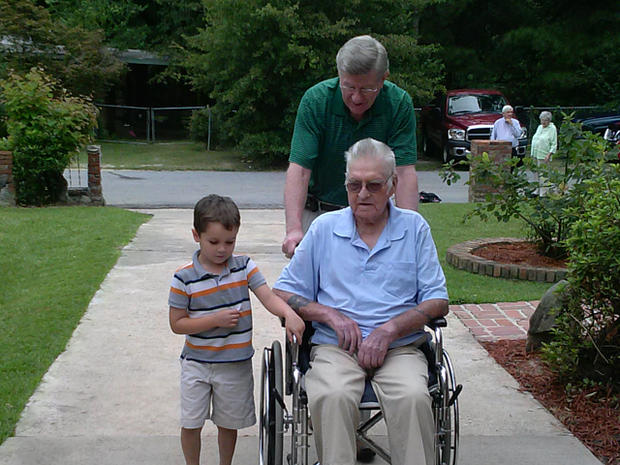Son discovers his father's heroism in Korean War
Charles Farrell did not learn about his father's bravery during the Korean War until late July, the same week that marked the 60th anniversary of the war's end.
Soldiers from Fort Benning, Ga., had volunteered to repair the elder Farrell's home nearby through a program that helps veterans. When a retired command sergeant major looked through Vincent J. Farrell's military paperwork, he noticed Silver and Bronze stars.
"He never talked about it," Charles Farrell said. "Never. I had no idea."
According to the citation for the Silver Star medal, on the night of April 25, 1953, soldiers in a patrol near Kumhwa, Korea, became trapped in a minefield as they returned from a mission. They were told not to move while Farrell, a master sergeant assigned to B Company, Seventh Infantry Regiment, crawled through the field, disconnecting the trip wires. When he reached the patrol, he helped a wounded man to his feet and guided them to safety.
"If that's not a John Wayne movie, I don't know what is," Charles Farrell, 61, said.
The following month, Vincent Farrell's unit was under heavy mortar fire and artillery bombardment. One round exploded close to the ammunition bunker, setting it on fire and detonating a case of grenades. Farrell rushed into the bunker, began removing burning cases of ammunition and then put out the fire. For that, he was awarded the Bronze Star with a V for valor.
Farrell, who is 86, has been in poor health and had been bedridden since the day after Christmas. But more recently he has been improving and walking some again, said Charles Farrell, who works as a civilian audiovisual specialist at Fort Benning.
Charles Farrell stops in to make breakfast for his parents every morning, his wife stays with them during the day, and they eat dinner together, he said.
"When I read the citations, I said, 'My dad is an honest-to-goodness hero,'" he said. "I thought to myself, 'He saved a lot of lives.' And there's a lot of people alive, grandkids and great-grandkids, who wouldn't be here."
The work on Vincent Farrell's house was done by a nonprofit group called Warrior Outreach, started by Samuel Rhodes, the retired command sergeant major who spotted the medals. Rhodes served 29 years in the U.S. Army, including 30 months in Iraq, and then began a program to help soldiers recover from physical and psychological injuries through horseback riding. The home repairs followed.
Vincent Farrell, who retired from the Army after 20 years, was originally in the cavalry, his son said, and he has a photograph of his father in formation on horseback. And so Rhodes approached the Third Squadron, 16th Cavalry at Fort Benning and told them: "'I think it would be dynamic if you guys decided to help me remodel his home, clean it up.' And they decided yes."
The 20 volunteers cut down trees, pruned shrubs, painted, and power-washed Farrell's driveway, finishing the work on the 60th anniversary of the armistice that ended the conflict.
"They worked hard," Charles Farrell said. "They were wonderful people."
Vincent Farrell was originally from North Dakota, one of three brothers. One, Ray, retired from the Air Force. The other, Bill, who has died, retired from the Navy.
"The veterans need to be recognized while they are living, not after they're dead and gone," Rhodes said.
UPDATE: Vincent Farrell died on Jan. 6.

